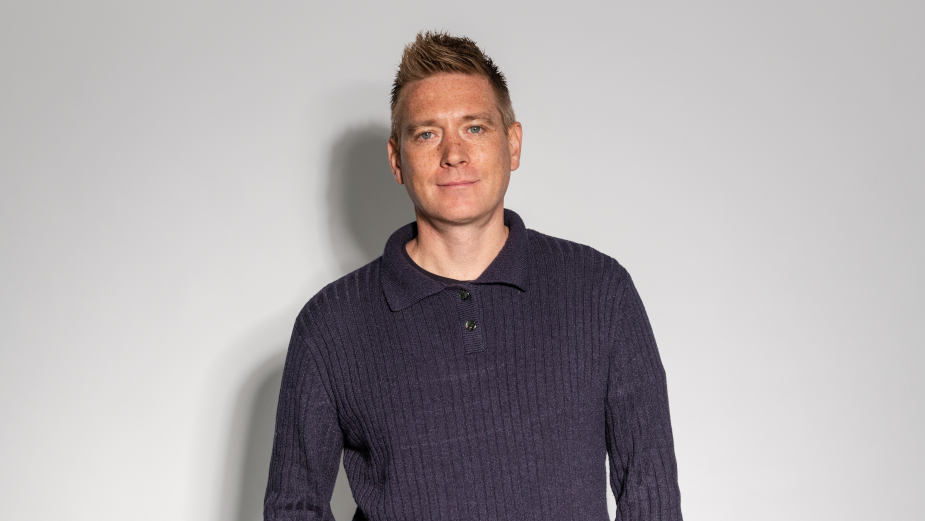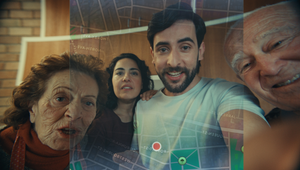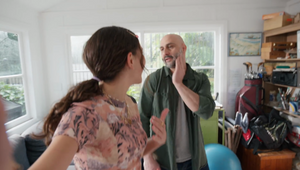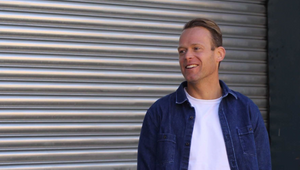
The New New Business: Listening More and Talking Less with Robbie Wood

Robbie Wood is a highly adept business development professional with over 16 years experience in the Australian market, with a background building successful business relationships and networks leading to revenue growth. Robbie spent over thirteen years with FBItalent as a Talent Agent and Head Hunter, primarily servicing the advertising and marketing industry. In May 2023, he joined 72andSunny as growth director, to lead their business development and new business efforts. A progressive and strategic thinker, Robbie will be tasked with finding opportunities to match 72andSunny’s strategy, creative and design offering with the needs of ambitious clients.
LBB> What was your first sale or new business win? (Was it a big or small job? How difficult or scary was it? What do you remember about how you felt? What lessons did you learn?)
Robbie> I come from a recruitment background which no matter how you slice it is fundamentally a sales industry so I have had a lot of experience over the years with both candidate placements and business development.
I remember my first ever placement when I started my career way back in 2007 and although it wasn’t a particularly eminent event financially it was extremely life-affirming and for that reason alone immeasurably valuable.
Getting that first run on the board in any new job or any new walk of life is an incredible feeling, it dispels doubts and builds belief that you can add value, and then you are off and running. Once you prove to yourself that you can do something the first time, it only gets easier from there.
I think one of the more important lessons I learned early on was that different approaches work for different people and it’s absolutely fine to work in a way that feels comfortable rather than stringently following a set of predetermined rules.
LBB> What was the best piece of advice you got early on?
Robbie> Good question! I’d probably say the best advice was to listen more and talk less. Good long-term relationships are the holy grail and understanding a prospective customer’s needs is only possible if you let them explain those to you without jumping in and trying to sort all their problems in the blink of an eye. Listen, absorb, contemplate and don’t be afraid to ask them to clarify something you miss or don’t understand. It’s better to feel a little foolish or uneducated at the start of an interaction if it means that you truly understand and empathise with your client in the long run.
LBB> And the worst?
Robbie> Hmm not sure! Perhaps ‘Fake it till you make it’? For the reasons I just mentioned I’d rather not fake knowledge or expertise in something in the short term if it means that I miss the mark in the longer term and lose the client or damage the relationship which is ultimately based on trust.
LBB> How has the business of ‘selling’ in the creative industry changed since you started?
Robbie> I do think that when I started recruiting there was still a bit of an old school ABC (Always Be Closing) aggressive sales mentality which is now very antiquated. I like to think the value now is in strong long term reciprocal relationships with clients rather than quick flash in the pan wins.
When I moved to FBItalent they employed a far more relationship based approach to all their clients and I instantly saw the benefits of that versus the more traditional recruitment model. It felt far more genuine and comfortable and in my opinion it is absolutely the best way to operate particularly in the creative industry space.
LBB> Can anyone be taught to sell or do new business or do you think it suits a certain kind of personality?
Robbie> Anyone can be taught techniques and coached to be pretty effective but there are definitely those who are naturals. The good thing about sales and new business is it’s not one size fits all in terms of approach. Ultimately new business is about communication, it’s one human talking to another about a product or service that they think may be of value. It’s not rocket science it’s just communication thankfully!
LBB> What are your thoughts about the process of pitching that the industry largely runs on? (e.g. How can it be improved - or does it need done away with completely? Should businesses be paid to pitch? What are your thoughts about businesses completely refusing to engage in pitching? How can businesses perform well without ‘giving ideas away for free?)
Robbie> Pitching is a big challenge for our industry. Creative agencies give away a lot of their IP essentially for free which erodes margins, burns agencies' cultures and ultimately devalues the creative product. That said, it’s a buyer’s market and you have to be in it to win it.
Companies who pitch respectfully give you a good gauge for what they will be like as client partners. Plenty of notice so agencies can plan for it, clarity on the brief, budget and decision criteria up front, keeping deliverables low and being forceful about not being marked extra for over delivering, keeping timelines short and offering a pitch fee all help massively.
One of the things we always ask for is more access to the client during the process. The experience of working with 72andSunny is very collaborative and unless we can replicate that during a pitch you don’t properly get a feel for working with us, nor do we get to our best output.
Ross our CEO worked at BBH London, who used to pitch with strategy only. I would love to see clients experimenting more with those types of approaches, where you can still get a feel for the team, chemistry and thinking but with a lower investment.
LBB> How do you go about tailoring your selling approach according to the kind of person or business you’re approaching?
Robbie> I may tailor things slightly in terms of researching the industry and perhaps the individual a bit but generally my approach is conversational. I’m lucky in that the offering that we have at 72andSunny is an extremely strong one so I focus on learning what I can from the client about the challenges they face and then it’s evident fairly quickly if we can add value for them. I see it less as selling more as seeing if there is a mutually beneficial fit in terms of cultural alignment and whether they share our vision for modern brand building.
LBB> New business and sales can often mean hearing ‘no’ a lot and quite a bit of rejection - how do you keep motivated?
Robbie> Yep, you have to be thick skinned it’s true but that comes with experience. I think that it’s important to remember that no doesn’t mean that you have failed in your task, it simply means the fit is not right. In fact, it means the fit is not right at this specific point in time. I’ll always try and take something away from every conversation whether that be a learning or a personal connection. Needs change, people move roles and the world turns so when you hear ‘no’ be polite, request to stay in touch and move on, for now.
LBB> The advertising and marketing industry often blurs the line between personal and professional friendships and relationships… does this make selling easier or more difficult and delicate?
Robbie> I like the fact these lines blur. Friendships are based on trust and so are good professional relationships.
LBB> In your view what’s the key to closing a deal?
Robbie> Due diligence. If you have taken the time to listen to your client, figured out where you can add value and how and the chemistry and trust is there then a deal will most likely happen. Even when it doesn’t you can walk away knowing you did all you could and that there will likely be a next time.
LBB> How important is cultural understanding when it comes to selling internationally? (And if you have particular experience on this front, what advice do you have?)
Robbie> We work with some client partners in the US and in APAC and cultural understanding is important. The same principles of listening, learning and being polite apply but with an extra layer of research up front. We have good partners in market who can help understand cultural nuance.
LBB> How is technology and new platforms (from platforms like Salesforce and Hubspot to video calls to social media) changing sales and new business?
Robbie> The technology available today is amazing and when utilised properly will make the sales and new business process infinitely slicker of that there is no doubt. I’m a bit old school though so I still love face to face in person meetings wherever possible. It’s still the best way to communicate and connect.
LBB> There’s a lot of training for a lot of parts of the industry, but what’s your thoughts about the training and skills development when it comes to selling and new business?
Robbie> Training on the technology such as CRMs is essential. I’m being trained on Hubspot right now thanks to our amazing and long-suffering team in the US. Training on soft skills is more of a case-by-case scenario. There are fundamentals to learn, however personality and communication is a pretty unique thing and I think that’s good.
LBB> What’s your advice for anyone who’s not necessarily come up as a salesperson who’s now expected to sell or win new business as part of their role?
Robbie> Don’t be scared to ask questions. The person sitting across from you whether it be a prospective client or your boss isn’t out to get you or to trip you up. Asking questions and more importantly listening to the answers will get you a long way. Also, enjoy the wins, you earn them but don’t wear the losses. Take a moment to reflect and learn then move on. Life is too short.















